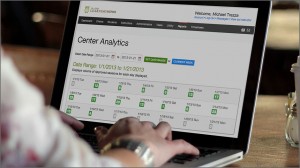 In the past, the typical business assembled its IT systems piece by piece.
In the past, the typical business assembled its IT systems piece by piece.
Core enterprises systems such as enterprise resource planning, financial management and human resources would be installed. As the company grew, additional applications would be added. Security solutions and backup systems would also come into play, typically retrofitted into the existing collection of IT resources. The company might also add a dashboard to enhance executive decision making.
All of those systems would almost always reside on-premises. The business would take on the responsibility for assembling and maintaining the necessary hardware, software and networking components of the IT infrastructure.
The emergence of the operating platform, however, promises to shake up the business-as-usual take on IT. Instead of a piecemeal approach to business process automation, the operating platform provides application software, process workflows, security and backup, and business analytics in a single, integrated offering.
Platform Advantages
Lithyem offers an operating platform that provides a unified technology and business process foundation for your business. Here are a few reasons to consider this holistic approach to IT:
Scalability: An operating platform enables companies to scale without accumulating unnecessary — and profit inhibiting — overhead. That’s a danger whenever sales growth compels a company to acquire new systems to keep pace. The result is often server glut and boated IT budgets. It also results in dismal infrastructure utilization as single-application servers become the norm within an organization. A scalable operating platform offsets the temptation to acquire new systems.
Integration: An end-to-end technology stack, which an operating platform exemplifies, eliminates the inefficiency of isolated systems. The operating platform makes it much easier to share data among applications and create smoother, well-connected business processes.
Data Quality: The operating platform reduces the potential for human error and thus improves data quality. That’s because the platform’s integrated nature eliminates the handoffs that often take place among IT systems. When a company deploys systems in isolation, employees must input customer and product data multiple times as an order journeys through the islands of automation. Mistakes become inevitable when employees key in data from a paper form or copy and paste data from one business application to another.
Cloud Impact
Another benefit of the operating platform model is that it is based on cloud computing. An organization does not need to invest in costly IT infrastructure and dedicate personnel to the care and feeding of business applications and supporting servers, networks and storage devices. The resources once focused on IT can be reassigned to your core business lines.
Cloud-based approaches such as Lithyem’s business operating platform turn IT into a utility that companies can rely upon. Lithyem’s cloud operates on a 24/7 basis and also includes data protection as part of the bundle.
We live at a time when business success can create problems just as quickly as profits. An operating platform is specifically architected to help your company accommodate growth. A business equipped with an operating platform is a business with an IT infrastructure built to scale.
How could an operating platform benefit your business?
















